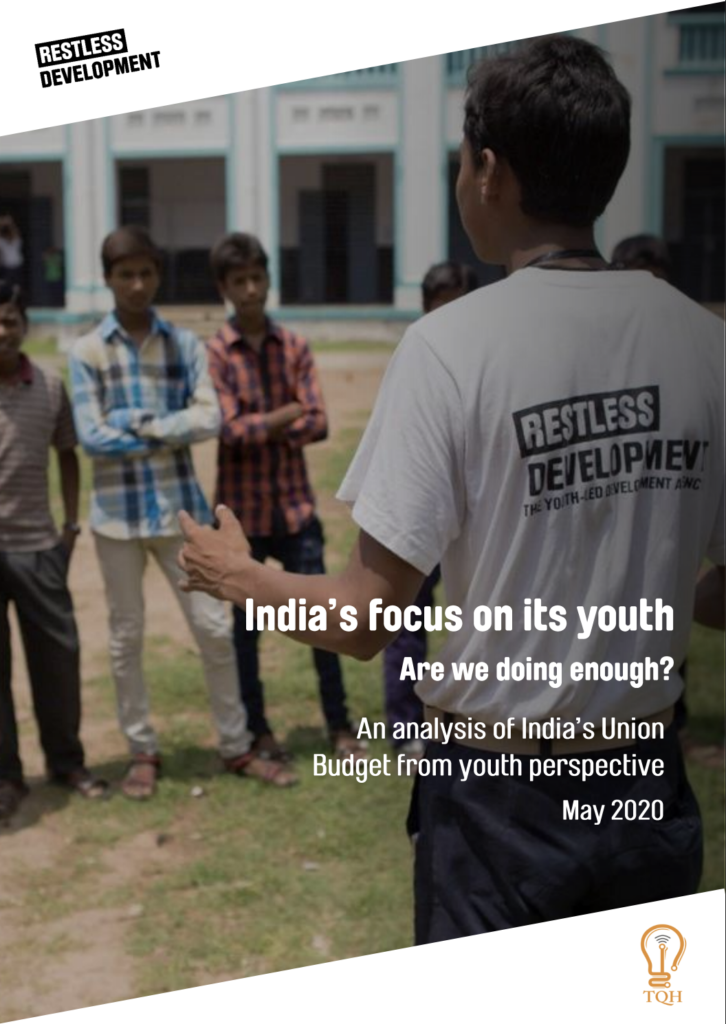Date:
20200815
Author/s:
A TQH Study
India’s focus on its youth – Analysis of the Union Budget
“Despite being home to one of the youngest populations in the world, India spends less than 4% of its annual budget on youth-focused schemes”
Restless Development, a global agency for youth-led development and The Quantum Hub joined hands to undertake a study to closely examine India’s budgetary allocations to understand how they address the challenge of preparing our youth for the future.
The study systematically analyses the Union Budget of India over the last five years from a “youth development” lens. By undertaking a broader, all-encompassing exercise that is similar to gender budgeting, the analysis throws light on the government’s priorities for young people while also showcasing trends in allocations to different youth schemes across the years.
The analysis is especially relevant at this time when the economy has been ravaged by the pandemic and opportunities for youth, in terms of education, skilling and capacity building, as well as employment have been severely constricted. Given that India has the largest youth population in the world, it remains an urgent need, more than ever before, to focus on the development of young people.
The analysis shows that the proportion of funding allocated to youth-focused schemes has declined in recent years; in fact, it is at its lowest in the 2020-21 budget. More than a third of India’s population will be in the age group of 10-34 by the year 2021, but the 2020-21 Union Budget outlay for this group is only 3.9%, indicating a lack of adequate focus to development of youth in India.
Of the total budget allocated to youth-focused initiatives, the largest proportion is earmarked for education, followed by skilling and employment. Within education, 75% of the funding to higher education goes to highly selective autonomous institutes, such as, IITs and IISc. At the same time, funding for state higher education institutions has reduced by 78%. The overall skilling budget has halved from 2.8% in 2016 to 1.4% in 2020. In terms of scale, the largest skilling scheme Pradhan Mantri Kaushal Vikas Yojana is looking to provide soft skills training to a mere 10 million young people, out of over 450 million young people.
Moreover, despite the fact that mental health concerns continue to affect young adults in India, a concern that has gained greater prominence during the pandemic, there is no large-scale focused program to address this problem.
The study notes that “India is one of the youngest countries in the world and if we wish to leverage the power of this young population, there needs to be a strong and concerted effort towards youth development. Even though there are a wide variety of schemes and initiatives in the government’s policy arsenal, a strong focus on the youth still seems to be lacking. The allocations specifically meant for youth are concentrated in areas of education and employment, with not enough focus on other critical areas such as mental health or civic participation and leadership that are required for a well-rounded, meaningful and healthy life.”
